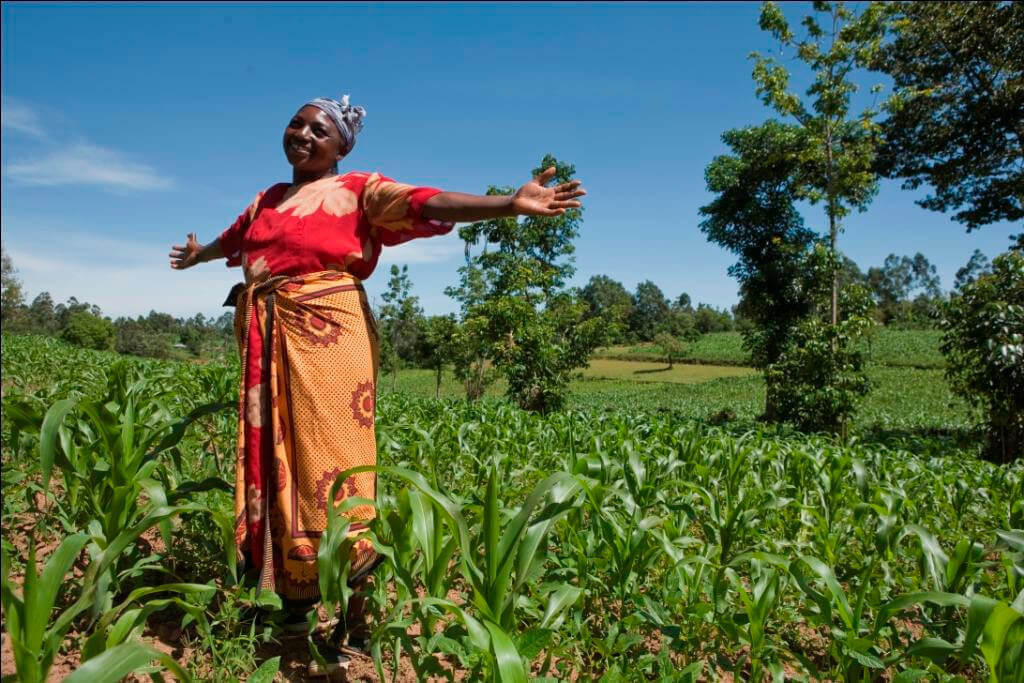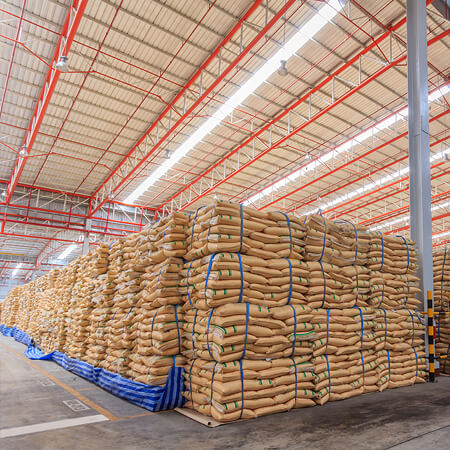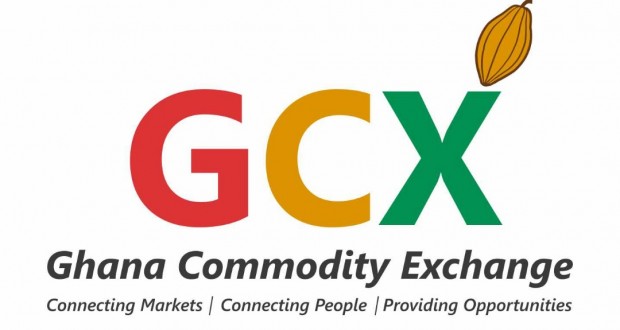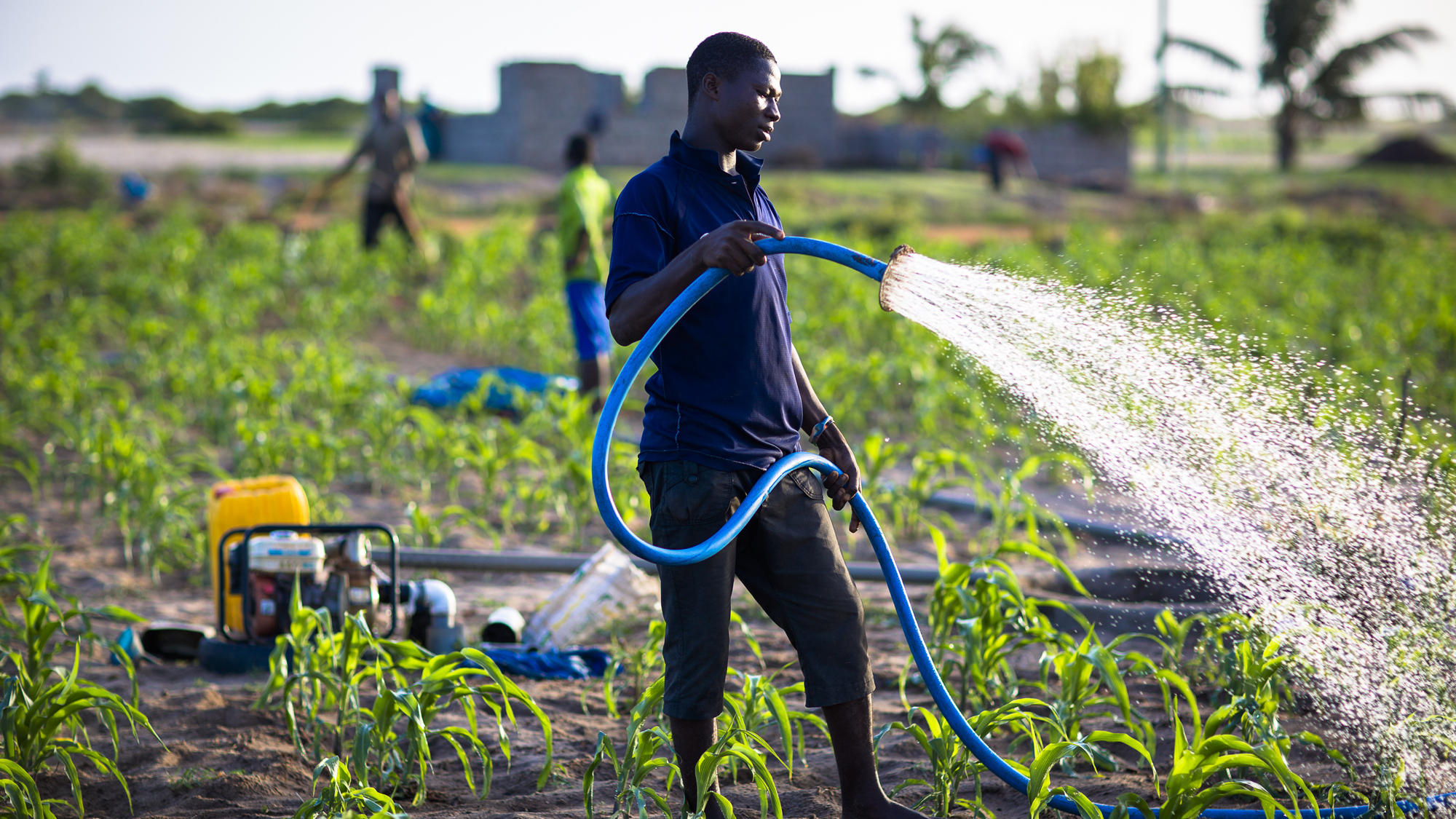Ghanaian banks pledge more than 50 million cedis to support farmers
The Ghana Commodity Exchange (GCX) has launched the first electronic warehouse receipts-based financing for commodity producers, traders and agribusinesses in Ghana, aiming to improve the access to finance and promote the use of warehouse receipts for trading and financing. A warehouse receipt is a document of title given to farmers and traders after they store their produce in a GCX certified warehouse. The depositors are then able to use the warehouse receipt to trade on the Ghana commodity exchange trading platform or can use it as a collateral to secure short-term loan (between 3-4 months) from a Ghana Commodity Exchange Warehouse Receipt System (WRS) partner bank.
FARMERS’ ACCESS TO CREDIT

Lack of access to credit is a severe constraint for many Ghanaian farmers. A main reason for their difficulties to obtain credit is that farmers are often unable to offer enough conventional loan collateral such as houses and cars. With the GCX warehouse receipt financing, the farmers crop itself provides security for a loan, so farmers are now able to access post-harvest finance for their working capital needs. The financing cycle begins after the harvest.
The harvested crop can be stored in a GCX certified warehouse that issues a receipt proving that the commodity is physically in the warehouse. This receipt forms the basis of the financing.
This system is expected to bind several value chain participants together: farmers, warehouse owners and managers, banks and the government. The role of the government is to build a legal and institutional framework that guarantees the performance of the system and minimizes transaction costs. It is expected that the system would provide benefits for farmers through an enhanced access to credit, a reduced cost of commodities storage and the possibility to delay their sales and take advantage of the seasonality of prices. Ghanaian financial institutions would gain by decreasing their risk exposure, through the utilization of collaterals that can be easily liquidated.
SOME CHALLENGES
The story however is not wholly told as there are challenges; the major challenges for the system would come from : spoilage, losses and quality depreciation of the stored goods, and speculation (farmers might try to maximize their profits by holding the produce until prices reach a peak). Other risks are related to the GCX certified warehouses: fraudulent activities, mishandling of the commodity and insolvency. The CEO of the GCX, Dr Kadri Alfah said the exchange is ready to address these challenges to ensure that the banks are confident to lend. The GCX in additions to installing operational controls have various financial performance guarantee mechanisms (Indemnity Fund, insurance bonds, bank guarantees) to mitigate these risks.
THE WAREHOUSE RECEIPT FINANCE SYSTEM

Warehouse receipt finance can be provided under different
warehousing arrangements (private, field or public warehouses) and for any
agricultural commodity that can be stored without losing its qualities. It is
often used for grain but in several countries, it has also been used for
commodities such as nuts, cocoa, coffee, cotton, cheese, and wine.
Warehouse receipt finance has a long tradition in many Western countries,
including the USA, and in parts of the developing world. Some countries, such
as Ethiopia, South Africa and Tanzania have gained from developing a
full-fledged warehouse receipt system given the size of their grain market.Agriculture is one of the key sectors of the Ghana economy,
accounting for up to 20% of the GDP and 60% of employment in Ghana.
SECURING SHORT TERM LOANS
The GCX electronic Warehouse receipts will be used to secure short term loans for the GCX partner banks for farmers who deposit in any of the GCX warehouses in Tamale, Kumasi, Ejura, Afram Plains, Kintampo, Wenchi, Sandema, Wa for the purpose of trading through the GCX electronic trading platform.
The short-term loan would meet the immediate working capital needs of the farmers while they wait for better commodity prices and avoid distress sale.
The GCX is a private company limited by shares but owned 100% by the government of Ghana who provided the set-up capital to establish the exchange. The GCX currently trades white maize, yellow maize, sesame, sorghum, soya bean contracts for immediate delivery through several warehouses.
PARTNER BANKS REDUCE THEIR RISKS
The GCX facility will support Ghanaian banks and financial institutions in extending financing to local farmers and agribusinesses using the GCX warehouse receipts as sole collateral for the loans at a cost of 2-3% per month. The GCX has a few partner banks including GCB, Fidelity, Zenith, FNB, UBA, Standard Chartered, Barclays, Ecobank, UMB, ADB, ARB APEX bank, are all banks that have signed contracts with GCX to provide warehoused receipts-based loans under the new GCX warehouse receipts framework. CCH Finance House Ltd, a finance house is also participating with Repurchase agreement financing. So far, the banks have pledged over 100million cedis line of credit for the GCX warehouse receipts financing scheme. The GCX has targeted over 320,000 farmers in the first phase of the scheme as beneficiaries. The GCX and IFC/SECCO have trained farmers on the use of warehouse receipts and warehouse receipts financing. Ghanaian farmers producing maize, soya bean, sorghum, sesame can now deposit in GCX warehouse and get an electronic receipt which they could use to secure a loan from any of the GCX partner banks. A farmer could get a loan within 72 hours of application.
“We are delighted to launch this innovative facility in Ghana, which will help farmers and agribusinesses to gain better access to financing and will support Ghanaian banks and financial institutions in providing new commodity-backed lending products”, said Dr Kadri Alfah the CEO of GCX.
REGULATIONS
“GCX is regulated by the Ghana Security and Exchange Commission, who have issued the GCX a LICENCE TO OPERATE WAREHOUSES AND ISSUE ELECTRONIC WAREHOUSE RECEIPTS. The GCX operates a few warehouses certified by the Ghana Standards Authority and Food and Drugs Authority and the Fire Services. The GCX provides a service to commodity producers including commodity testing, cleaning, drying grading, weighing, packaging, storage, warehouse receipts issuance, warehouse receipts financing, collateral management, and a platform for price discovery. The GCX operates a centralized electronic trading platform in Accra where buyers and sellers of commodities congregate to trade. A Seller of a commodity is paid through the exchange’s settlement bank within 24 hours of selling.
Press Release







